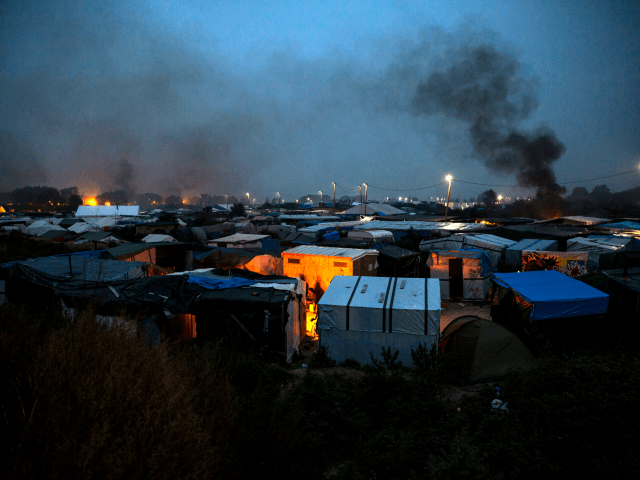CALAIS, France (Reuters) – France began clearing the sprawling “Jungle” camp on Monday as many migrants who have camped for months or years among sand dunes near Calais gave up on their dreams of reaching Britain, a tantalisingly short sea crossing away.
Following sporadic outbreaks of unrest overnight, the migrants chose instead with calm resignation to be relocated in France while their asylum requests are considered.
By the evening, 2,318 camp residents – more than a third of the total – had left the squalid shanty-town outside the northern port by bus and were being rehoused at reception centres across the country, Interior Minister Bernard Cazeneuve said.
French officials celebrated the peaceful start to the attempt to dismantle the camp, which has become a symbol of Europe’s failure to respond to the migration crisis as member states squabble over who should take in those fleeing war and poverty.
But some aid workers warned that the trouble overnight, when some migrants burned toilet blocks and threw stones at riot police in protest at the camp’s closure, indicated tensions could escalate.
The migrants from countries such as Afghanistan, Syria and Eritrea had wanted to reach Britain, which is visible from Calais on a clear day. Some had wished to join relatives already there and most had planned to seek work, believing that jobs are more plentiful than in France.
Some migrants said they were reluctant to leave. “My brother is in London. I want to go and live with him,” said Khaled Oryakhil, in his 20s, from Kabul. However, he added: “I don’t have any choice. I will go on the bus if they force us.”
The Socialist government says it is closing the camp, home to 6,500 migrants, on humanitarian grounds. It plans to relocate them to 450 centres across France.
Britain is barring most of the migrants on the basis of European Union rules requiring them to seek asylum in the first member states they set foot in.
DESTINATION UNKNOWN
Even as the process began, the fate of about 1,300 unaccompanied child migrants remained uncertain.
Cazeneuve urged Britain last week to step up efforts to identify and resettle child migrants. London has given priority to children with family ties and discussions are underway with Paris over who should take in minors with no connections.
His British counterpart Amber Rudd said 800 children from the camp had already been interviewed.
“We hope to reach the figure of a few hundred more over the next two to three weeks while the camp is being cleared,” she told parliament in London. “Then we will have done our commitment to the French which we hope will be (to take in) approximately half of the children who were there.”
RAZING THE CAMP
Armed police had fanned out across the Jungle as the operation got underway. Interior Ministry spokesman Pierre-Henry Brandet said that authorities had not needed to use force and the police presence was just for security.
Aid workers went from tent to tent, urging migrants to leave before heavy machinery is rolled in to start the demolition.
The hundreds who volunteered on Monday to move on were each given two destinations to chose from before being bussed to the reception centres. There they will receive medical checks and if they have not already done so, decide whether to apply for asylum.
The far-right National Front party said the government plan would create mini-Calais camps across France.
About 60 buses left the camp on Monday and the government predicts the evacuation will take at least a week.
Many tents and makeshift structures that had housed cafes, bakeries and kiosks lay abandoned. On the side of one wooden shack a message to British Prime Minister Theresa May had been scrawled in spray-paint: “UK government! Nobody is illegal!”
Despite the calm, charity workers expect hundreds will try to stay and cautioned that the mood could change later in the week when work begins on razing the camp.
“There’s a risk that tensions increase in the week because at some point the bulldozers are going to have to come in,” said Fabrice Durieux from the charity Salam.
Others warned that many migrants who remained determined to reach Britain would simply scatter into the surrounding countryside, only to regroup in Calais at a later date.
“Each time they dismantle part of the camp it’s the same thing. You’re going to see them go into hiding and then come back. The battles will continue,” said Christian Salome, president of non-profit group Auberge des Migrants.

COMMENTS
Please let us know if you're having issues with commenting.